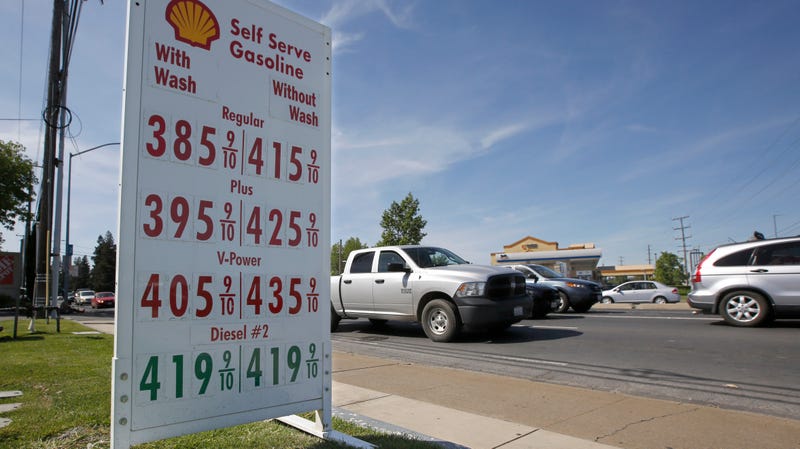
Donald Trump, fresh off moving to eviscerate lightbulb efficiency standards he thinks will make him look too orange and declaring war on the world’s largest intact temperate rainforest, is reportedly set to revoke California’s ability to regulate vehicle emissions.
Tailpipe emissions are the single largest source of CO2 emissions in the U.S, contributing to global climate change already outpacing scientific predictions. Trump is already trying to roll back Barack Obama-era federal auto emissions standards, but has run into trouble because even auto manufacturers oppose it and have sided with the California standards (not out of the goodness of their hearts, but for fear of splitting the U.S. auto market in two). Per the New York Times, this seems like a bit of a disingenuous end-run around that impasse: Trump is simply set to revoke a waiver granted under the 1970 Clean Air Act that allows California to set emissions standards tighter than the federal government.
The move, set to be announced at the Environmental Protection Agency headquarters in D.C. on Wednesday, is going to spark off a major court battle between the federal government and California. Per the Times, there is no precedent to such a decision, and if the Supreme Court rules with Trump, it could potentially result in states permanently losing the ability to regulate auto emissions. Of course, fossil-fuel industry plant, coal ash gargler, and EPA chief Andrew Wheeler is in support of this:
“This is unprecedented and a tremendously big deal,” said Richard L. Revesz, a professor of environmental law at New York University, noting that no administration has ever revoked a state’s authority to regulate its own air quality in the past.
In a speech on Tuesday, Andrew Wheeler, the head of the E.P.A., said, “We embrace federalism and the role of the states, but federalism does not mean that one state can dictate standards for the nation.”
… The Obama-era tailpipe pollution rules that the administration hopes to weaken would require automakers to build vehicles that achieve an average fuel economy of 54.5 miles per gallon by 2025, cutting about six billion tons of carbon dioxide pollution over the lifetimes of those vehicles. The proposed Trump rule would lower the requirement to about 37 miles per gallon, allowing for most of that pollution to be emitted.
While the rollback was part of Trump’s broader plan to roll back the Obama-era standards, the Times noted that gutting California’s ability to set its own standards may be part of a strategy to force the automakers siding with the state into line.
“It’s clear that the president felt very strongly about this,” Thomas J. Pyle of the pro-fossil fuels Institute for Energy Research told the Times. “The actions of California and the other auto companies probably firmed up or hardened the president’s resolve on this issue, so here we go.”
California Governor Gavin Newsom said the move was part of the president’s “vendetta” against the state, which has also earned Trump’s ire over renewable energy plans for the southern California desert, waterways rules, and some kind of “Forrest” [sic] management dispute about wildfires. (Everything Trump has said on the topic of forest management has been unadulterated gobbledygook, but the dispute appears to center on his belief that wildfires can be prevented by logging enough trees.)
“It’s a move that could have devastating consequences for our kids’ health and the air we breathe if California were to roll over,” Newsom told the L.A. Times in a statement. “But we will not—we will fight this latest attempt and defend our clean car standards.”
“It’s clearly a big slap at California,” UCLA environmental law professor Ann Carlson told the L.A. Times. “It does make you wonder whether there’s a motivation here that’s political rather than legal.”











